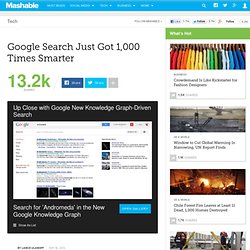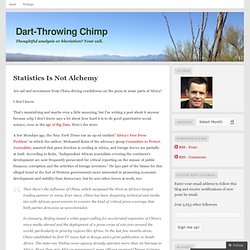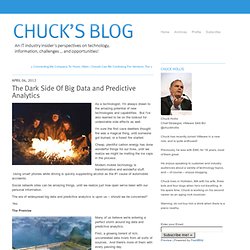

MIT, Intel unveil new initiatives addressing ‘big data’ Google Search Just Got 1,000 Times Smarter. The Google Search of the future is here.

Now. Today. The long-talked-about semantic web — Google prefers “Knowledge Graph” — is rolling out across all Google Search tools, and our most fundamental online task may never be the same again. Starting today, a vast portion of Google Search results will work with you to intuit what you really meant by that search entry. Type in an ambiguous query like “Kings” (which could mean royalty, a sports team or a now-cancelled TV show), and a new window will appear on the right side of your result literally asking you which entity you meant. To understand the gravity of this change, you need to know about the fundamental changes going on behind the scenes at Google Search. As Ben Gomes, Google Fellow, put it, Google is essentially switching “from strings to things.”
To build this world of things, Google is tapping a variety of knowledge databases, including Freebase, which it bought in 2010, Wikipedia, Google Local, Google Maps and Google Shopping. Statistics Is Not Alchemy « Dart-Throwing Chimp. Are aid and investment from China driving crackdowns on the press in some parts of Africa?

I don’t know. That’s unsatisfying and maybe even a little annoying, but I’m writing a post about it anyway because why I don’t know says a lot about how hard it is to do good quantitative social science, even in the age of Big Data. Here’s the story: A few Mondays ago, the New York Times ran an op-ed entitled “Africa’s Free Press Problem” in which the author, Mohamed Keita of the advocacy group Committee to Protect Journalists, asserted that press freedom is eroding in Africa, and foreign forces are partially at fault.
The Dark Side Of Big Data and Predictive Analytics. As a technologist, I'm always drawn to the amazing potential of new technologies and capabilities.

But I've also learned to be on the lookout for undesirable side effects as well. I'm sure the first cave dwellers thought fire was a magical thing, until someone got burned, or a forest fire started. Cheap, plentiful carbon energy has done wonderful things for our lives, until we realize we might be melting the ice caps in the process. Modern mobile technology is transformative and wonderful stuff. Using smart phones while driving is quickly supplanting alcohol as the #1 cause of automobile accidents. Social network sites can be amazing things, until we realize just how open we've been with our personal information. The era of widespread big data and predictive analytics is upon us -- should we be concerned?
Yes. The Premise Many of us believe we're entering a perfect storm around big data and predictive analytics. The good news? But that doesn't mean that there won't be unwanted side effects.